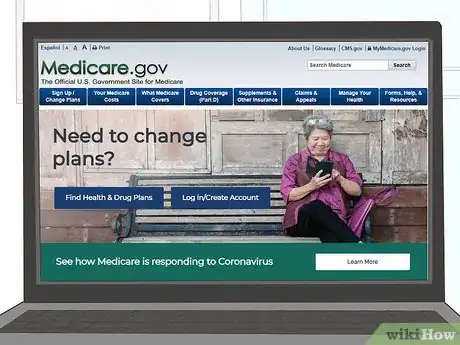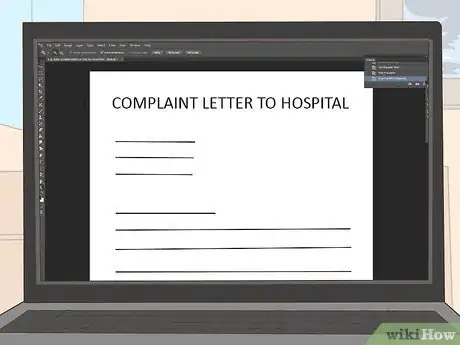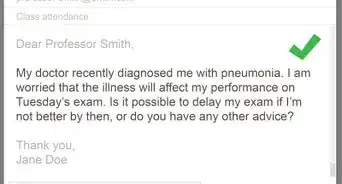X
wikiHow is a “wiki,” similar to Wikipedia, which means that many of our articles are co-written by multiple authors. To create this article, 28 people, some anonymous, worked to edit and improve it over time.
This article has been viewed 43,892 times.
Learn more...
A lot of people know how things are when it comes to a rude hospital staff. The personnel are usually overworked, and by the time they get around to servicing you, their nerves are shot and their patience is gone. Finally when someone does call you, they have the nerve to cop an attitude. If you have spent any length of time in a hospital, you have come in contact with some pretty rude workers. The good news is that there are ways to deal with them.
Steps
-
1Keep your cool. While being sick and calm is not an easy thing, you want to be clearly understood in order to be treated respectfully. Make sure the rude person isn't you if you are addressing this particular issue. Rudeness doesn’t mean they’re a bad person either; they might just lack social skills.[1]
-
2Try to understand the rude person's point of view. Emergency rooms are busy. The more severe patients are treated first. Staff do their best to prioritize and can lack a smile on their face when so many people have severe problems they have to deal with. Emergency rooms are highly stressful environments and staff might be dealing with personal problems on top of that. That shouldn't excuse their behavior, but it might help you understand that their attitude is not personal.[2]Advertisement
-
3Do your research prior to going to the hospital whenever possible.
- In the United-States, Medicare is now putting the data out there for you to see and compare. Log on to medicare.gov, and compare hospitals in your area. Pay close attention to readmission rates. This tracks how many patients had to be readmitted for the same condition. You can also research how satisfied patients were with the care they received. It will help you determine where you can get the best care for your illness.
-
4Be compliant. While the nurses and providers would like things to be quick and fast, that is not always the case in the hospital or emergency department. Understand it takes time for testing, and for the doctor to get back to the nurses.
-
5Ask to talk to the person in charge. If you’re unhappy with a hospital staff member, there are ways to address this. If you don't like how the nurse or the provider is treating you, you have the right to ask to be treated by someone else. Ask to talk to the triage nurse, charge nurse, or the nurse manager of the floor, and if they are not available then you can ask to speak to the nursing supervisor.[3]
-
6Use non-violent communication. Explain the situation clearly with facts and in a calm voice to the person in charge. Avoid shouting or insulting staff. The person in charge will address the situation and talk to the staff.[4]
-
7Notify the hospital. File a complaint. Hospital staff should be caring and their patients' health must be a priority.[5]
-
8Get an advocate. It helps for the acutely ill patient to have an advocate to make sure their needs are met and they are comfortable. Have a family member there during the day and another in the evening. They can then take turns advocating, communicating with the doctors and nurses, and asking questions. The advocate can keep a log or email notification, informing family members of the testing done, the care received, the doctor’s plans, and any questions to ask. With HIPAA laws you will be able to find out more information if you are there advocating for the patient and you are at the bedside.
Advertisement
References
- ↑ https://www.medicalbag.com/home/specialties/nurse-practitioners/condescending-doctors-and-how-to-deal-with-them/
- ↑ https://www.medicalbag.com/home/specialties/nurse-practitioners/condescending-doctors-and-how-to-deal-with-them/
- ↑ https://willpeachmd.com/how-to-respond-to-rude-doctors
- ↑ https://www.cnvc.org/learn-nvc/what-is-nvc
- ↑ https://www.hhs.gov/answers/health-insurance-reform/how-can-i-complain-about-poor-medical-care/index.html
About This Article
Advertisement













-Step-14-Version-2.webp)





















































Medical Disclaimer
The content of this article is not intended to be a substitute for professional medical advice, examination, diagnosis, or treatment. You should always contact your doctor or other qualified healthcare professional before starting, changing, or stopping any kind of health treatment.
Read More...